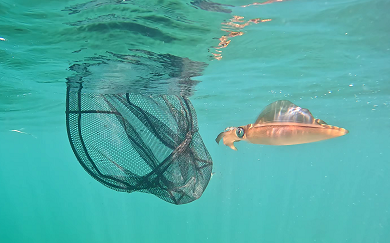Over the past two years, fisheries researchers from the Department of Primary Industries and Regional Development (DPIRD) have joined fellow scientists from Murdoch, Curtin and Edith Cowan universities and CSIRO to carry out hundreds of field trips in Cockburn Sound.
Supported by the Western Australian Marine Science Institution (WAMSI), the joint research effort is assessing the abundance and distribution of 25 key fish and invertebrate species and looking at their multiple life stages to identify critical habitats over the course of a year to establish a baseline for future monitoring.
The WAMSI Westport Marine Science Program field work will be completed later this year to enable analysis and interrogation of the broad range of data collected.
In addition to pink snapper, blue swimmer crabs and King George whiting, other key species in Cockburn Sound include small pelagic fish like whitebait, sardine and scaly mackerel that are a food source for resident fairy penguins, bottlenose dolphins and Australian sea lions.
The research is providing an important contribution to the knowledge of Cockburn Sound’s broader marine ecosystem and relationships among key species and environmental variables.
Under the WAMSI Westport Marine Science Program, DPIRD researchers have also been looking at southern calamari or ‘squid’ as they are more commonly known. The sheltered seagrass meadows throughout Cockburn Sound are some of the most productive and popular locations for recreational squid fishing in WA.
DPIRD researcher Daniel Yeoh said the project was assessing squid populations in Cockburn Sound and gathering finer scale distribution data for southern calamari than has ever been collected before.
“The surveys we are doing each month cover a comprehensive range of sites from Fremantle to Rockingham,” Dr Yeoh said. “The exact location and depth of every squid caught is recorded using mapping software on electronic tablets.
“As part of this important WAMSI research, we measure the squid quickly and note their sex before releasing them. A range of environmental parameters are also recorded including temperature, depth, water clarity, weather, and sea conditions.
 A squid swimming away after being checked by DPIRD researchers.
A squid swimming away after being checked by DPIRD researchers.
“So far, we’ve recorded and measured about 1,000 squid and 99 per cent of them were the southern calamari species, while the others were tropical species of loligo ‘arrow’ squid.
“As well as being popular in seafood markets and restaurants and prized for their eating qualities, squid are also an extremely popular species among WA anglers of all ages and skill levels.”